With the increase in internet usage, our online footprints stretch further than ever before. From targeted ads to data breaches, it can feel like our privacy is constantly under siege.
But fear not! Internet privacy is an increasingly important concern, and taking control of your online identity isn’t a pipe dream.
These are some of the notable statistics on cybersecurity and internet privacy tools.
- According to ITRC, there were 1,774 data breaches globally in 2022 alone.
- A Cisco Privacy Survey report indicates that up to 33% of global online visitors have experienced a data breach in one way or another.
- Up to 85% of adults believe that that need to take extra online privacy measures.
- The use of VPNs continues to increase with up to 16% of consumers currently using VPNs.
This article enlighten you on how to navigate the ever-evolving world of internet privacy in 2024. We’ll unveil the best tools and practices to shield your data, reclaim your online autonomy, and browse with confidence.
Notably, privacy isn’t just about avoiding targeted ads. It’s about safeguarding your identity, protecting your sensitive information, and enjoying the freedom of a truly open web.
We will look into the must-have tools for everyday privacy, under-the-radar gems, and actionable steps.
So, join us as we empower you to take charge of your digital life and embrace a more private 2024!
Now that you are looking to reclaim your online privacy, let’s discuss the various categories and viable examples of tools that will help you achieve this mission. They include;
Virtual Private Networks (VPNs)
Anyone considering online privacy will undoubtedly think of VPNs as their very first option. They shield your connection and encrypt your internet traffic to create a barrier between your online activity and your prying eyes.
VPNs are a must-have if you are using public WiFi, but will also come in handy even if you are on a private network. They enhance anonymous browsing and will reliably conceal your identity as you browse online.
But with several VPNs available, you may consider the following top contenders.
1. NordVPN
NordVPN is a global favorite for those looking for robust security features, a large server network, and top-notch speeds. It leverages NordLynx and OpenVPN encryption protocols to ensure reliability when it comes to shielding your online activity from third parties.
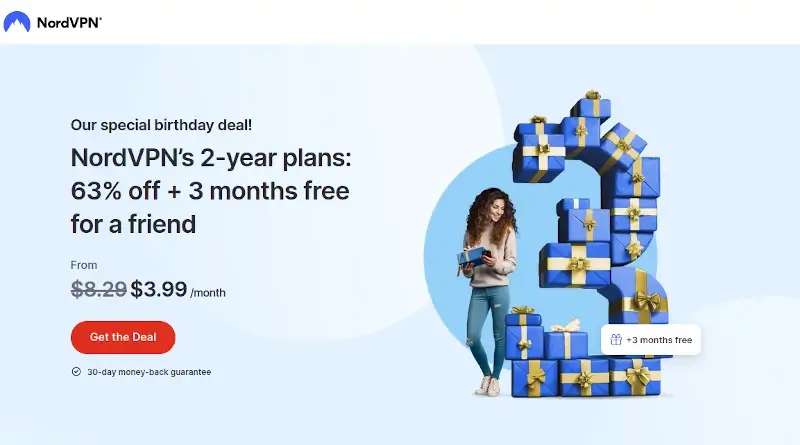
With servers in about 60 countries, NordVPN provides excellent global coverage. You can use it from a number of places across the globe and it allows you to connect to servers almost anywhere in the world.
Key Features of NordVPN:
- You can connect up to 6 devices simultaneously
- Allows you to browse without interruptions
- Compatible with all operating systems
- Protects your devices from malware
- Access your files remotely
2. ExpressVPN
ExpressVPN comes in as a handy alternative that is impossible to ignore. This popular tool offers a software application that reliably encrypts your internet traffic and completely masks your IP address to protect your privacy and secure your online activities.
Interestingly, ExpressVPN has a no logs policy. Thus, it does not keep any activity logs making it impossible for trackers to trace your downloads, browsing history, and any other online activity.
While this VPN comes at a fee, you will marvel at the amazing online security and unbeatably simple user interface.
Key Features of ExpressVPN:
- Offers a wide server network
- Guarantees amazing speeds
- Has a strong and reliable encryption
- You can use it in multiple gadgets
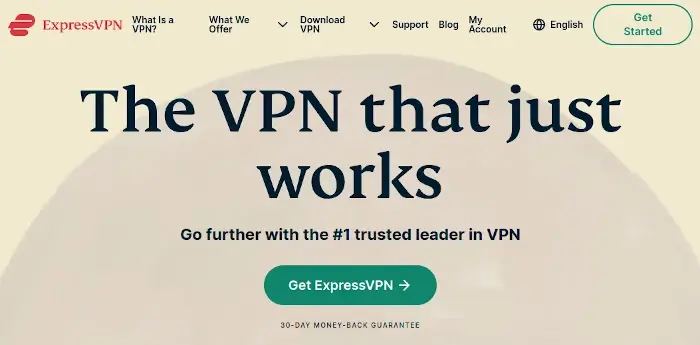
3. Surfshark
Another interesting option worth including in this article is Surfshark. It offers over 3,200 servers in 95 countries and stands out as an excellent VPN for its ability to allow for unlimited connections.
This feature makes it a perfect set if you want to protect many devices, including those of your family members and friends.
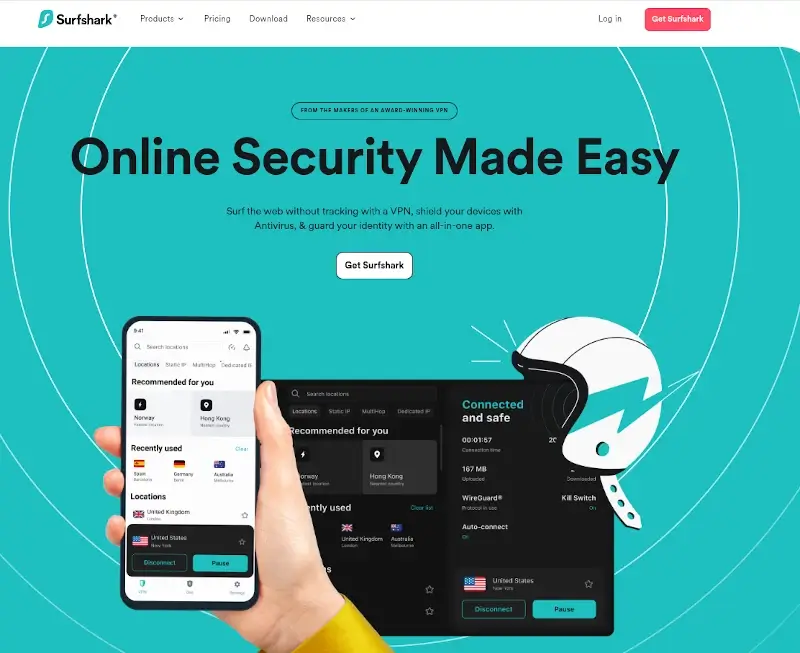
Despite the guarantee on quantity, Surfshark also offers remarkable quality when it comes to protecting you from malware, spyware, and third-party apps.
It has strong encryption protocols like IKEv2 to provide additional security features. Thus, you can expect to enjoy leak protection and kill switch capabilities should you choose to go with this tool.
Key Features of Surfshark:
- A user-friendly interface for effortless online privacy
- Offers a no-logs policy
- Guarantees 24/7 support in case you experience an issue
- Its antivirus works on the backstage
- Provides webcam protection
- Protects against personal data leakage
Encrypted Email Providers
As we already noted, online privacy goes beyond blocking ads and malware. Are you tired of feeling like your email is being read over your shoulder?
If you ever felt so, ditching the big guys and switching to an encrypted email provider is a crucial step towards safeguarding your privacy.
These providers prioritize user control and data security, ensuring your communications remain confidential.
They offer end-to-end encryption and other privacy-enhancing features, making them ideal for personal and professional use.
1. ProtonMail
ProtonMail is an open-source secure email provider that offers reliable end-to-end encryption. It also provides encrypted cloud storage and an intuitive calendar.
Thus, it is a comprehensive privacy-focused solution that provides you with a productive platform for professional and personal functions.
Key Features of ProtonMail:
- Its open-source nature ensures transparency and tryst
- Features a free plan
- Cloud storage capacity of up to 500 MB for basic plan
- Compatible with various devices and apps
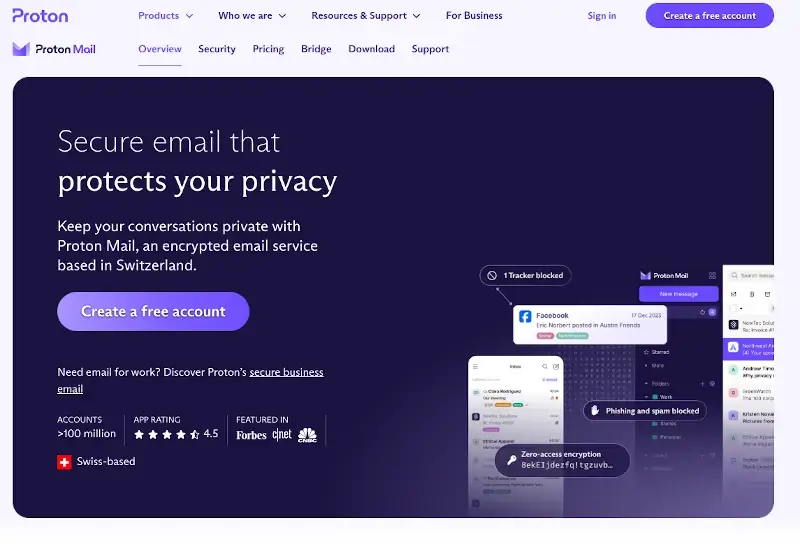
2. Mailbox.org
If you are a privacy-conscious business user looking to enhance your email privacy, Mailbox.org is a perfect bet.
Mailbox.org utilizes the popular PGP encryption to offer secure communication by encrypting your messages.
But Mailbox.org is not your ordinary end-to-end encrypted email provider. Besides its basic function of encrypting emails, it also comes with professional address books, video conferencing capabilities, and an array of online office tools.
These additional features make it a proper tool for private, business, school, and public authority customers. It goes head-to-head against other major providers like Office365 and GSuite.
Key Features of Mailbox.org:
- Offers an array of interesting pricing plans
- Comes with an integrated calendar
- Has amazing task management tools
- Provides custom domain names
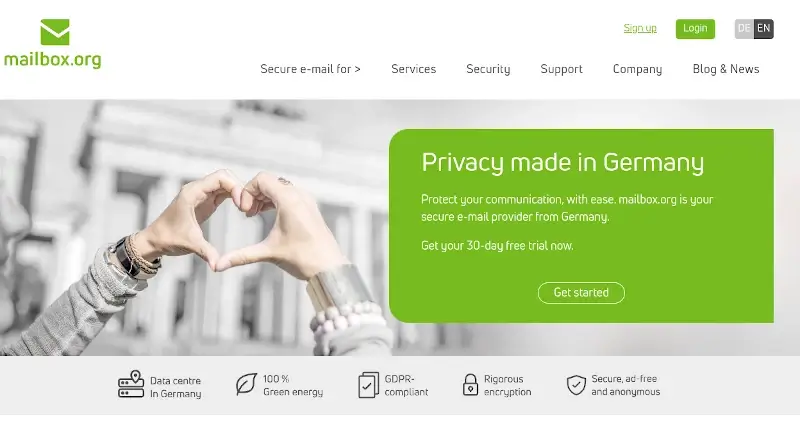
Privacy-Focused Search Engines
We currently live in a world where ads and data trackers are the order of the day, with traditional search engines like Bing and Google always painting a skewed picture of the web.
Privacy-focused alternatives offer a breath of fresh air by prioritizing user anonymity and unbiased results. Let’s explore two leading contenders.
1. Brave Search
If you are looking for a privacy-focused search engine that will not track your clicks and searches, Brave Search is worth your consideration. You can use this search engine without having to sign in.
Even more, this search engine does not store your IP address and only uses it to localize your results.
Another interesting feature of Brave Search is its ability to use its own independent index. This ensures that third-party providers do not influence your search results.
In addition to its privacy features, Brave Search offers a user-friendly search interface and customizable search provider buttons.
Key Features of Brave Search:
- Has an AI-powered summarizer
- Does not track your searches
- Features a discussion section that aggregates conversations from Reddit and similar platforms
- Provides unbiased results
- Intuitive and easy to use
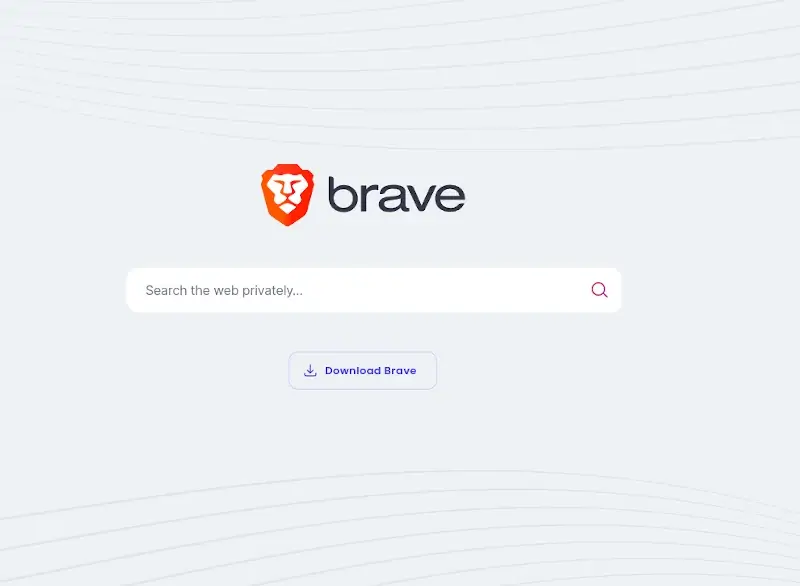
2. DuckDuckGo
Another privacy-focused search engine that focuses on the anonymity of its users and will neither track your activity nor store your personal information is DuckDuckGo.
Interestingly, this tool offers a browser extension and a mobile app to allow you to browse the internet without any worries about the possibility of your data being used by third parties.
Key Features of DuckDuckGo:
- Shows ads based on search results and not past search history
- Do not use a filter bubble
- Encrypts all your connections by default
- Your search results are not used for targeted advertising
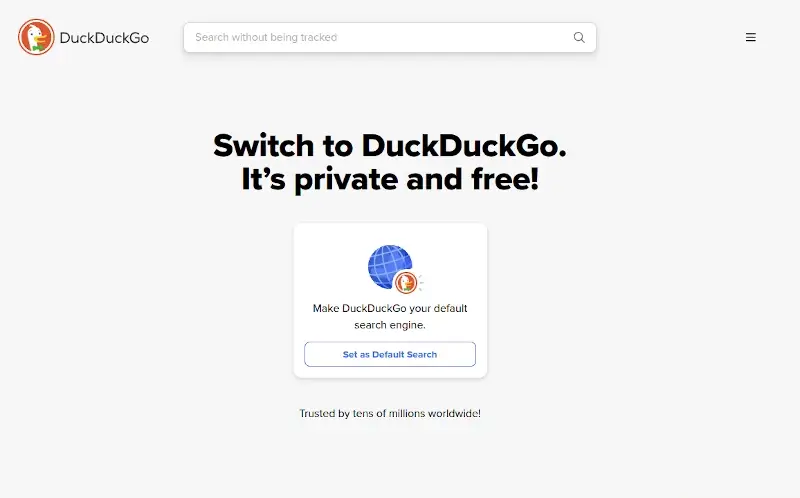
Encrypted Messaging Apps
Apart from emails and phone calls, private conversations involving text messaging are equally under threat. From government surveillance to corporate data collection, ensuring confidentiality in your messages can feel like a daunting task.
Fortunately, encrypted messaging apps are the deal. They offer secure communication channels shielded from prying eyes.
1. WhatsApp
With over 2 billion users in more than 180 countries, WhatsApp stands out as an ideal communication platform for those who value online privacy.
It offers end-to-end encrypted group chats, and voice and video calls. The app works across various platforms, including Android, iOS, iPadOS, KaiOS, macOS, Windows, and the Web.
It is known for its simplicity, reliability, and privacy, with personal messages and calls being end-to-end encrypted.
Key Features of WhatsApp:
- The app is entirely free to use
- Allows you to share your location without any threat of leakage
- Also compatible with Wear OS watches

2. Session
The other encrypted messaging app that makes it to this review is Session. It is a popular tool that leverages decentralized blockchain technology to redefine the landscape of private communication.
This decentralized framework eradicates the need for a centralized server. Notably, Session prioritizes user anonymity and security.
Thus, only those that the messages are intended for can read the messages. Unlike some other messaging apps, Session does not require a phone number, email, or any other identifying information to register.
This makes it an ideal choice if you are looking to limit identifying factors.
Key Features of Session:
- Secure end-to-end encryption
- You can create an account anonymously
- Does not connect users directly and instead relays messages through multiple nodes.
- Has the self-destructing image, call, and message feature
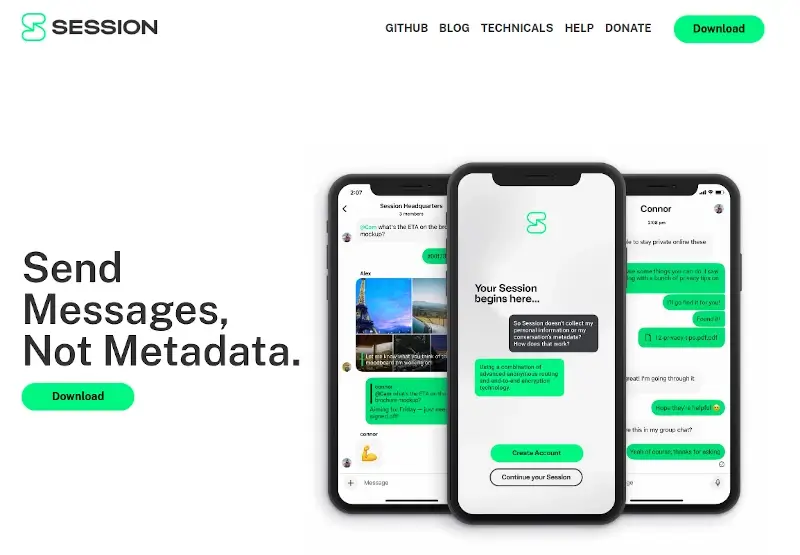
Antivirus and Anti-Malware Solutions
These two terms are pretty different types of privacy tools or cybersecurity software, although most often used interchangeably. Antivirus programs are good at protecting against more predictable, dangerous malware.
On the other hand, anti-malware protects against newer threats. Antivirus software is designed to detect, protect against, and remove traditional forms of malware, such as viruses, worms, and Trojans.
But as you probably already know, anti-malware software specializes in newer exploits, like polymorphic malware and zero-day malware.
1. Malwarebytes
At the top of the most comprehensive cybersecurity tools for antivirus and antimalware solutions is Malwarebytes. This company has an amazing range of privacy tools for any digital device that you might have.
It employs cutting-edge technology to detect and eliminate a diverse array of malware, including viruses, ransomware, spyware, and Trojans.
Malwarebytes offers both free and paid packages. Besides, you can use it on personal devices, home devices, or at the business level.
Key Features of Malwarebytes:
- Allows VPN connectivity
- Ideal for ad and tracker blocking
- Can competently remove malware
- Protects against zero-day attacks

2. Norton AntiVirus Plus
Norton AntiVirus Plus is an all-inclusive solution for real-time protection against several categories of online threats.
It offers multiple layers of advanced security technology, including a smart firewall and a password manager for creating, storing, and syncing passwords across Windows, iOS, and Android devices.
Norton AntiVirus Plus has received positive reviews for its robust protection and additional features such as a smart firewall and PC cloud backup.
The software is available for purchase as a subscription and is designed to safeguard personal information and devices from a wide range of cyber threats.
Key Features of Norton AntiVirus Plus:
- Comes with a password manager
- Can easily block hacking attempts
- Does not slow down your computer
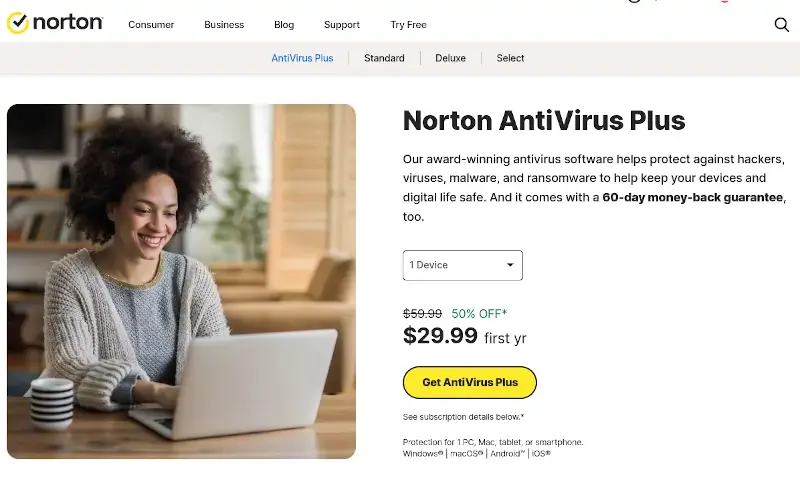
Dedicated Password Managers
When you talk about privacy, your online accounts become another area that you need to look into. Do the terms password thefts and account losses sound familiar?
If they do, then dedicated password managers are your next privacy tools.
With the growing number of online accounts, the temptation to reuse passwords or opt for easily memorable combinations is understandable.
However, such practices expose you to significant security risks.
Dedicated password managers provide a secure vault to store and manage complex, unique passwords.
1. LastPass
LastPass stands out as a trusted and feature-rich solution for managing your digital credentials. Its user-friendly interface will ensure you organize and manage your digital keys efficiently. This reduces the hassle of remembering numerous complex passwords.
And since security is paramount in the world of password management, LastPass employs robust encryption standards to safeguard your data.
It utilizes AES-256 encryption to ensure that your stored passwords remain indecipherable to unauthorized parties. Thus, you can stay protected against potential breaches.
Key Features of LastPass:
- Allows cross-platform accessibility
- Can generate and store new passwords
- Provides an autofill feature for login credentials
- Can generate unique and strong passwords
- A free version is available for users on a budget
- You can monitor your accounts for potential breaches
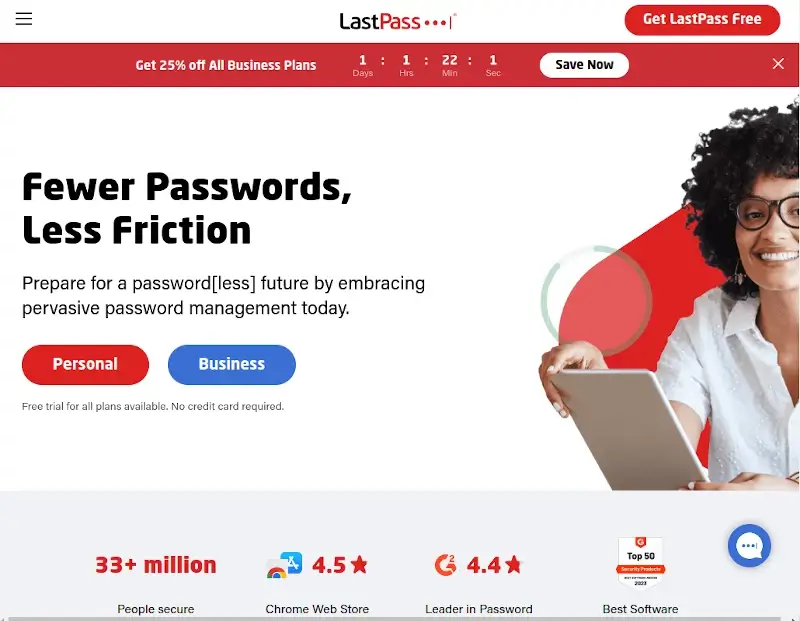
2. 1Password
1Password is undoubtedly a beacon of excellence for managing passwords, thanks to its amazing combination of features. Thus, you can rely on this tool to manage your passwords and ensure that each password remains private.
This popular password manager offers a secure vault to store sensitive information, including passwords. It provides features such as autofill for login credentials.
Besides, you can use it to generate strong password formations.
Key Features of 1Password:
- Allows for form-filling
- A free version is available
- Supports biometric authentication
- You can use the Travel Mode feature
- The Watchtower feature provides real-time alerts
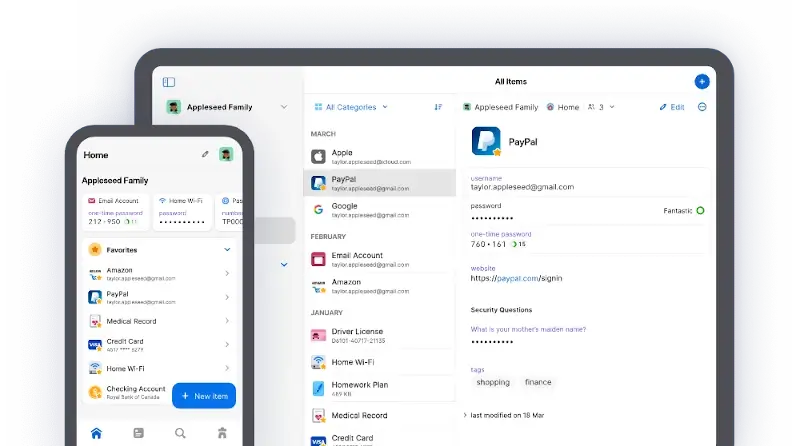
3. Bitwarden
Bitwarden is an open-source password manager that prioritizes security. It offers robust encryption to safeguard sensitive data across devices.
Bitwarden seamlessly syncs passwords, secure notes, and other credentials across platforms, ensuring accessibility anywhere.
Bitwarden’s easy-to-use design helps you sort your passwords easily and keep tricky passwords safe without any hassle. Notably, it supports multi-factor authentication for added security layers.
Bitwarden’s extensive browser extensions and mobile apps enhance user experience, enabling easy autofill and password generation. Additionally, Bitwarden boasts features like secure sharing for collaborative usage and self-hosting options for advanced users seeking complete control over their data privacy
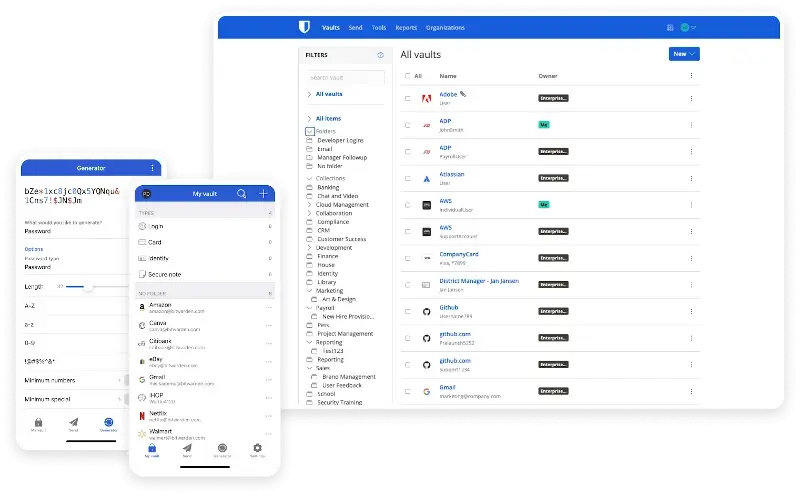
Frequently Asked Questions (FAQ’s)
Following are some of the Frequently Asked Questions (FAQs) about Internet Privacy Tools.
1. How can I protect my online privacy and stay safe from data collection and tracking?
Protecting your online privacy and staying safe from data collection and tracking involves implementing a combination of proactive measures and adopting privacy-conscious habits.
These strategies can help you enhance your online privacy:
- Use a Virtual Private Network (VPN): Utilizing a trustworthy VPN service is your first and arguably the most integral privacy strategy that encrypts your internet connection. VPNs mask your IP address and prevent websites or anyone else from tracking your online activities.
- Opt for Encrypted Communication Channels: Choose messaging apps with end-to-end encryption, such as Signal, WhatsApp, Session, or Telegram, to ensure that your private conversations remain confidential and inaccessible to third parties.
- Secure Browsing Habits: Use privacy-focused browsers, like Firefox or Brave, and configure them for enhanced privacy. Additionally, consider browser extensions like uBlock Origin or Privacy Badger to block unwanted trackers and advertisements.
- Limit Third-Party Cookies: Configure your browser settings to block or limit third-party cookies. This reduces the ability of advertisers and websites to track your online behavior across different platforms.
2. What makes end-to-end encryption essential in messaging apps for privacy?
End-to-end encryption (E2EE) is essential in messaging apps for privacy because it ensures that only the communicating parties can see or read the messages. The implication is that even the provider of the software or service cannot access the message.
3. How does Google protect my privacy and keep my information secure?
Google protects privacy and information security by employing advanced security measures, such as encryption, proactive security alerts, and automatic threat detection.
It also provides users with tools to control their privacy settings, including the ability to manage what data is saved to their Google Account, set data to delete automatically, and control what data gets saved using Activity Controls.
Conclusion
If you are looking to safeguard your privacy, you have a wide array of options from which you can choose. However, embracing the best internet privacy tools of 2024 is not merely a matter of preference.
Instead, it is a strategic decision to safeguard your digital sanctuaries from the myriad threats that lurk in the online expanse.
From Virtual Private Networks (VPNs) to the secure fortresses of password managers, you are empowered to take control of your online privacy with a sophistication that mirrors the digital landscape itself.
As we conclude this article, it is essential to recognize that the quest for online privacy is an ongoing journey. Technological advancements will continue to shape the tools at our disposal.
Thus, you must remain vigilant by adapting to emerging threats and staying informed about the evolving landscape of digital security.

LastPass stands out as a trusted and feature-rich solution for managing your digital credentials.
Shocked that lastpass is being recommended even after major breaches in the recent years. But Bitwarden is not in the list.
@Anon,
I appreciate your concern about LastPass and the recent breaches. In the article, I aimed to highlight LastPass as a trusted and feature-rich solution based on its overall performance.
However, I do understand that security is a top priority. I will take note of your suggestion to include Bitwarden in future recommendations.
Thanks for bringing it to my attention!
Hi Winnie
Thanks for your interesting article.
However, you must be joking, aren’t you?
“WhatsApp stands out as an ideal communication platform for those who value online privacy”
“The app is entirely free to use”
If someone values online privacy, WhatsApp is certainly a no-go due to the fact that meta data is heavily harvested – and sold!
And there is where your second statement falls flat. It is not free, users pay with their very valuable data!
Hi GM,
Thank you for your feedback on my blog post. I appreciate your interest in the topic.
Regarding your comment about WhatsApp, I understand your concern. Of course, there has been an uproar and allegations that Meta collects metadata which is a concern for privacy-conscious users. But this has been majorly on Facebook.
While WhatsApp is owned by Meta, it operates separately from the main Facebook app. This means that the privacy policies and data collection practices of WhatsApp are different from those of Facebook.
And in our context, I meant that the end-to-end encryption here ensures that no third party can see your WhatsApp conversations…even Meta cannot.
Finally, sorry I was not more explicit when I used the term “free” here. I mean that you do not need any subscription to use the platform. Of course, you will “pay” with your data. But how many communication platforms would you enjoy without internet?
Still, your point emphasizes the need for transparency in discussions about the true cost of seemingly free services.
I value your input and conversations like these make us more enlightened on online privacy.
Thank you.
Winnie A.
Hi Winnie
Many thanks for your detailed reply and helping your readers understand the background. Highly appreciated.
Please allow me to add some more information to your statement that “While WhatsApp is owned by Meta, it operates separately from the main Facebook app. This means that the privacy policies and data collection practices of WhatsApp are different from those of Facebook.”
It is correct that this was promised at the time of purchase by Facebook. For years unfortunately this is not true (anymore)!
Here only two of many, many references that can be found online:
https://www.techradar.com/news/whatsapps-new-privacy-policy-requires-you-to-share-data-with-facebook
WhatsApp’s new privacy policy requires you to share data with Facebook (January 08, 2021)
https://www.wired.com/story/whatsapp-facebook-data-share-notification/
WhatsApp Has Shared Your Data With Facebook for Years, Actually (January 08, 2021)
“When WhatsApp launched a major update to its privacy policy in August 2016, it started sharing user information and metadata with Facebook.”
Conclusion: If a user values privacy, WhatsApp – and any other app owned by Meta – is a no-go!
Hello GM,
Thank you for sharing this additional information regarding WhatsApp’s data sharing practices with Facebook. Privacy is a big concern for internet users and I like how much time you have put into this.
The references you provided, and many others that I have had to read over the past few days, highlight the changes in WhatsApp’s privacy policy over the years, particularly the sharing of user information and metadata with Facebook starting from a major update in August 2016.
This data sharing arrangement raises concerns for users who prioritize privacy, as it may impact their trust in WhatsApp and other Meta-owned apps.
As it stands, I agree that WhatsApp is not a top privacy tool and my readers should re-consider their choice for the app. The uproar about its privacy policy cannot come for no reason.
Thank you for enlightening me on this and feel free to read more of our articles.